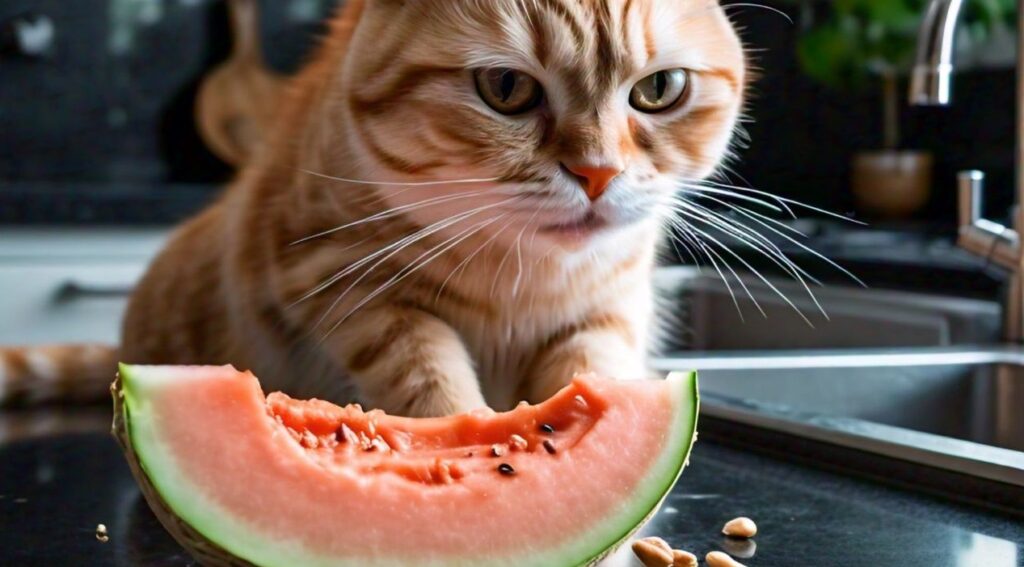How Long Can Your Cat Live? Cats, with their independent spirit and undeniable charm, hold a special place in our hearts. But how long can we expect these furry companions to be by our side? The good news is, with proper care, feline friends can grace our lives for quite some time.
The Feline Forecast: Lifespan in Numbers
The average lifespan for a domestic cat falls between 13 and 17 years According to the PetMD. However, exceptional felines can surpass these expectations, reaching well into their early twenties. The oldest recorded cat, Creme Puff, defied the odds and lived a remarkable 38 years!
| Cat Age Group | Dietary Needs |
|---|---|
| Kittens (up to 1 year) | High protein for growth and development |
| Adult Cats (1-7 years) | Balanced protein, fat, and carbohydrates for energy |
| Senior Cats (7+ years) | Easily digestible food with adjusted protein and fat content to support aging bodies |
How Long Can Your Cat Live? Tips for health Life
While genetics play a role in a cat’s lifespan, several factors significantly influence their well-being:
- Diet: Provide your cat with a high-quality food formulated for their age and activity level. A quick reference table can help you navigate this:
- Veterinary Care: Regular checkups, vaccinations, and parasite prevention are crucial for maintaining good health. Schedule annual exams and address any health concerns promptly.
- Indoor vs. Outdoor: Indoor cats generally live longer as they’re less exposed to accidents, diseases, and fights. If you do allow outdoor access, ensure a safe, enclosed environment.
- Exercise and Enrichment: Stimulate your cat’s body and mind with playtime, scratching posts, and climbing structures. Engage them with interactive toys and rotate them regularly to keep things interesting.
- Weight Management: Obesity can lead to health problems. Monitor your cat’s weight and adjust their diet or activity level as needed. Consult your veterinarian for guidance on ideal weight and portion control.
Living a Long and Happy Cat Life Together
By incorporating these tips into your cat’s routine, you’re not just extending their lifespan, you’re giving them the foundation for a happy and fulfilling life. Remember, a well-cared-for cat is a healthy cat, and a healthy cat is a source of joy for many years to come. So, shower your feline friend with love, attention, and proper care, and watch them blossom into a senior kitty with a purr that warms your heart.
7 Perfect Tips for a Long and Happy Cat Life
Cats bring us companionship, entertainment, and endless cuddles. But to keep those purrs going strong, proper care is essential. Here are 7 tips to ensure your feline friend thrives for many years to come:
- Fuel Their Feline Fury with the Right Food: A balanced diet is the cornerstone of a healthy cat.
- Kitten Chow: Kittens are growing machines! Provide high-protein food formulated for their specific needs.
- Adult Cat Cuisine: Adult cats need a balanced mix of protein, fat, and carbohydrates for sustained energy.
- Senior Savvy: As cats age, their dietary needs change. Opt for easily digestible food with adjusted protein and fat content to support their aging bodies.
2. Prioritize Preventative Care: Regular vet checkups are vital for catching health issues early. Schedule annual exams, vaccinations, and parasite prevention to keep your cat healthy.
- The Great Indoors: While some cats crave adventure, indoor cats generally live longer. They’re less exposed to accidents, diseases from other animals, and territorial fights. If you do allow outdoor access, consider a safe, enclosed catio.
- Exercise Their Hunting Instincts: Don’t underestimate the power of playtime! Engage your cat’s natural hunting instincts with interactive toys, scratching posts, and climbing structures. Rotate toys regularly to keep things interesting.
- Respect the Need to Scratch: Scratching is a natural behavior for cats, both for maintaining healthy claws and marking their territory. Provide scratching posts made from durable materials like sisal to redirect this behavior and save your furniture.
- Litter Box Bliss: A clean litter box is essential for a happy cat. Choose a large box, scoop waste daily, and completely change the litter regularly. Placement is important too – find a quiet, easily accessible location.
- Shower Them with Love (and Grooming): Cats are masters of self-grooming, but they still appreciate a helping hand. Regular brushing removes loose fur, helps prevent hairballs, and strengthens your bond. Don’t forget the cuddles and playtime – affection goes a long way in a cat’s world.
By incorporating these tips, you’ll create a happy and healthy environment for your feline friend, extending their lifespan and enriching your life with purrs and companionship for years to come.
For a happy cat life, remember these key points: Choose wisely by adopting a cat that fits your lifestyle, kitten or adult. Prepare your home with a clean litter box, fresh water, and safe spaces. Prioritize health with regular vet checkups, proper diet, and parasite prevention. Engage their minds with playtime and scratching opportunities. Shower them with love through playtime, cuddles, and gentle grooming. By following these tips, you’ll create a purrfect environment for your feline friend, fostering a lifelong companionship.
Special Think
Best Pet Owner FAQ for a Happy Cat Life
Thinking about welcoming a feline friend into your life? Cats are wonderful companions, but like any pet, they require specific care to thrive. This FAQ will answer some of the most common questions new and experienced cat owners face:
Choosing Your Cat
- Adopting vs. Buying: Consider adopting a cat from a shelter or rescue. You’ll be giving a deserving animal a loving home!
- Purebred vs. Mixed Breed: Purebred cats have specific characteristics, but mixed breeds can be just as healthy and loving.
- Kittens vs. Adult Cats: Kittens are adorable, but require more training and supervision. Adult cats may be calmer and already litter-trained.
Bringing Your Cat Home
- Cat-proofing Your Home: Secure electrical cords, remove toxic plants, and provide hiding spots for your new cat to feel comfortable.
- Litter Box Basics: Choose a large litter box with clumping litter and place it in a quiet, easily accessible location. Scoop waste daily and change the litter regularly.
- Food and Water: Provide fresh, clean water daily. Choose a high-quality cat food appropriate for your cat’s age and activity level. Consult a veterinarian for specific recommendations.
Keeping Your Cat Healthy
- Veterinary Care: Schedule regular checkups, vaccinations, and parasite prevention to keep your cat healthy.
- Indoor vs. Outdoor: Indoor cats generally live longer, but some cats enjoy supervised outdoor access. Consider a catio or harness training if you want your cat to experience the outdoors safely.
- Weight Management: Obesity can lead to health problems in cats. Monitor your cat’s weight and adjust their diet or activity level as needed.
Happy Cat, Happy Life
- Playtime: Engage your cat’s natural hunting instincts with interactive toys, scratching posts, and climbing structures. Rotate toys regularly to keep things interesting.
- Scratching Needs: Provide scratching posts made from durable materials like sisal to direct your cat’s scratching behavior and save your furniture.
- Cuddles and Affection: Don’t underestimate the power of love! Regular brushing strengthens your bond and helps prevent hairballs. Shower your cat with affection through playtime, petting, and cuddles.
Common Cat Behavior Questions
- Litter Box Problems: A dirty litter box, inappropriate location, or health issues can cause litter box avoidance. Address these concerns and consult a vet if problems persist.
- Meowing: Cats meow to communicate! Pay attention to the context and adjust accordingly. They may be hungry, seeking attention, or have a medical issue.
- Hairballs: Regular brushing helps minimize hairballs. If hairballs are a frequent problem, consult your veterinarian about dietary options.
Additional Resources
- American Society for the Prevention of Cruelty to Animals (ASPCA): https://www.aspca.org/
- The Humane Society of the United States: https://www.humanesociety.org/
- Your Local Veterinarian: They are an invaluable resource for personalized advice on your cat’s specific needs.
- Read our article for more info about your Pet(s)
Remember, cats are individuals with unique personalities. By providing proper care, understanding their behavior, and showering them with love, you can create a lifelong bond and ensure your feline friend thrives for many years to come.


